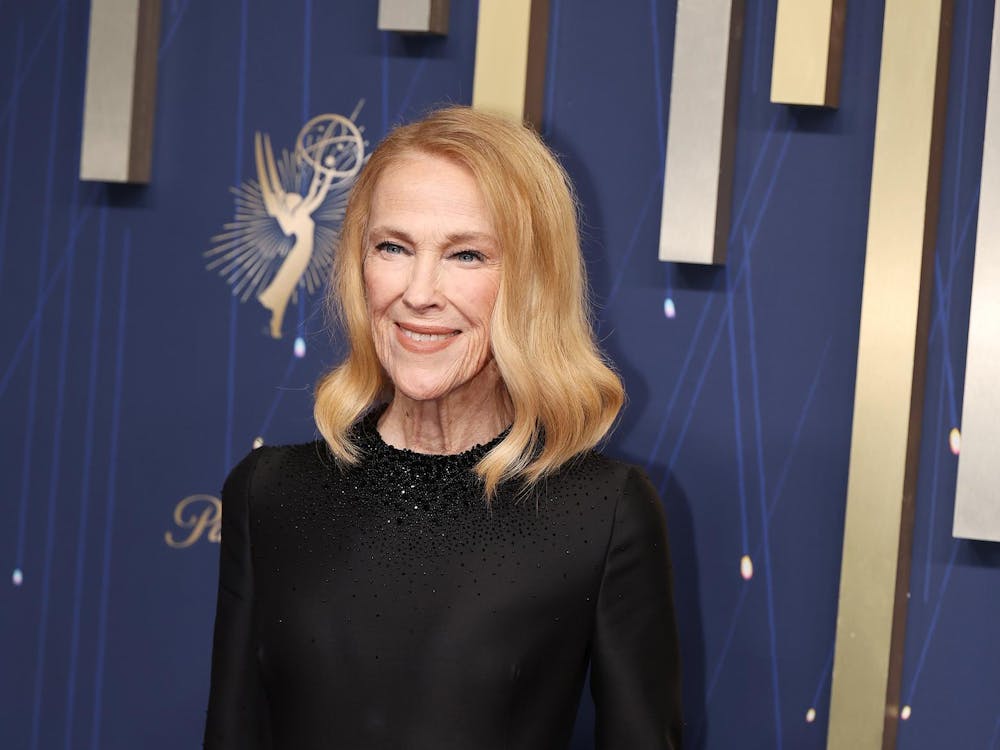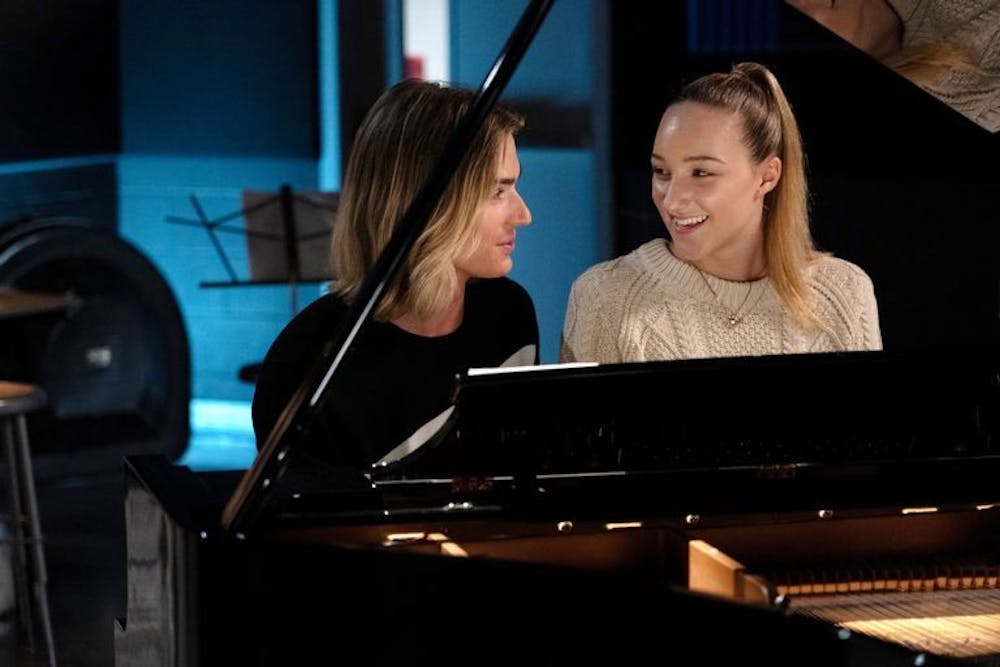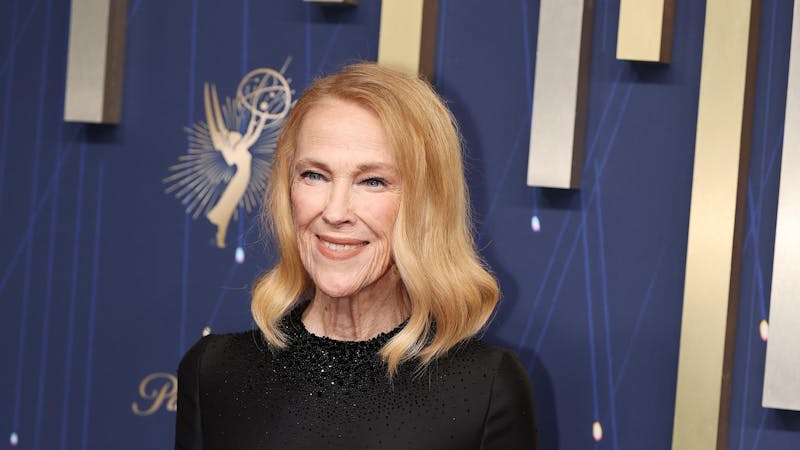Let’s get something straight: high school sucks. If you didn’t think it sucked, you’re probably the reason it sucked for the rest of us. Those formative years of your life where you’re constantly making bad decisions and getting relentlessly dunked on can be a nightmare to look back on for many people. I scraped by thanks to branding myself as “the funny fat guy,” but let me tell you, if I hear one more person make a “fat guy eat Twinkie” joke, I’m going to create a doomsday weapon fueled entirely by preservative-stuffed snack cakes.
So, to me, it’s a complete anomaly why bog-standard teen movies get greenlit so often. Sometimes you have real winners like The Hate U Give, which ascend beyond the cliches and use the toxic atmosphere as a backdrop for intense storytelling. Other times, you have movies like Sierra Burgess is a Loser, which was a Netflix experiment to see how unlikable they could make a protagonist while still getting away with it (spoiler: they didn’t). And now, somewhere in the middle, Tall Girl tries to blend in with the popular crowd despite being a cringey, insufferable, capital-L-loser of a film.
A unique take on high school, just like everyone else
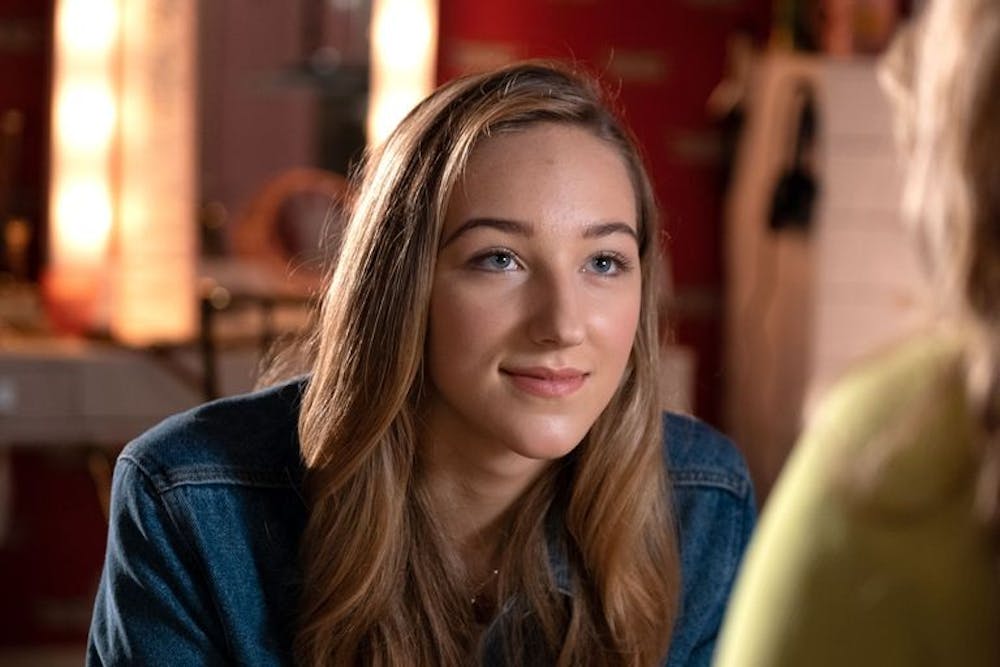
Image from Digital Spy
Tall Girl attempts to stand out from the crowd by having a premise seemingly transported from the early 2000s era Disney Channel original films. Jodi (Ava Michelle), the titular Tall Girl, is a 6’1” high school junior that receives constant, cartoonishly-exaggerated harassment due to her height. She towers over all of her classmates, but this Amazonian pianist can’t seem to find the confidence to overcome the people knocking her over. Specifically, she struggles with love, unable to find a guy who feels comfortable being the little spoon in the relationship. She’s friends with Fareeda (Anjelika Washington), the token sassy black friend, and Jack Dunkleman (Griffin Gluck), a short king determined to be the tick bird to Jodi’s giraffe. The three stick together through thick and thin, even though Jack’s obsession with Jodi frequently steps over the line of quirky to creepy.
This dynamic is rattled by the arrival of Stig (Luke Eisner), a Swedish foreign exchange student with good hair and a tall body. Jodi, captivated by this Nordic chad-beast, is determined to reinvent herself and gain the confidence to pursue the guy despite adversity from not only her rival Kimmy (Clara Wisley), but also her own bad decision-making. And if any of that sounded like I just filled in a Mad Lib for the topic “Teen Movie Synopsis,” then you likely have some questions as to whether or not lead writer Sam Wolfson is a human being or a cover name for a robot designed to create Netflix original films. I will say though, to the film’s credit, I actually did genuinely like the running gag of the generically beautiful pageant-winner older sister having crippling allergies. It’s just unusual and underplayed enough that it stays consistently funny throughout the film. Unfortunately, that’s the one sturdy stilt this stinker is standing on.
Tall Girl, without a shadow of a doubt, is a bombardment of bad cliches and overdone plotlines. I highly encourage brave viewers of this film to make a list of predictions based on knowledge of other teen movies. You’ll likely find that your predictions are correct, regardless of whether or not they seemed to fit soundly within the narrative developed. This isn’t to say that cliches are the problem; oftentimes, cliches can help ground a strange film in a land of familiarity. The problem is that many of the cliched characters within Tall Girl are simply predestined to meet the fate of their character trope. In fact, in the case of the main cast, their tropes overpower the actually interesting parts of their characters as the AI checks the boxes to factory-produce the film.
Discomforting relationships for poorly-written characters
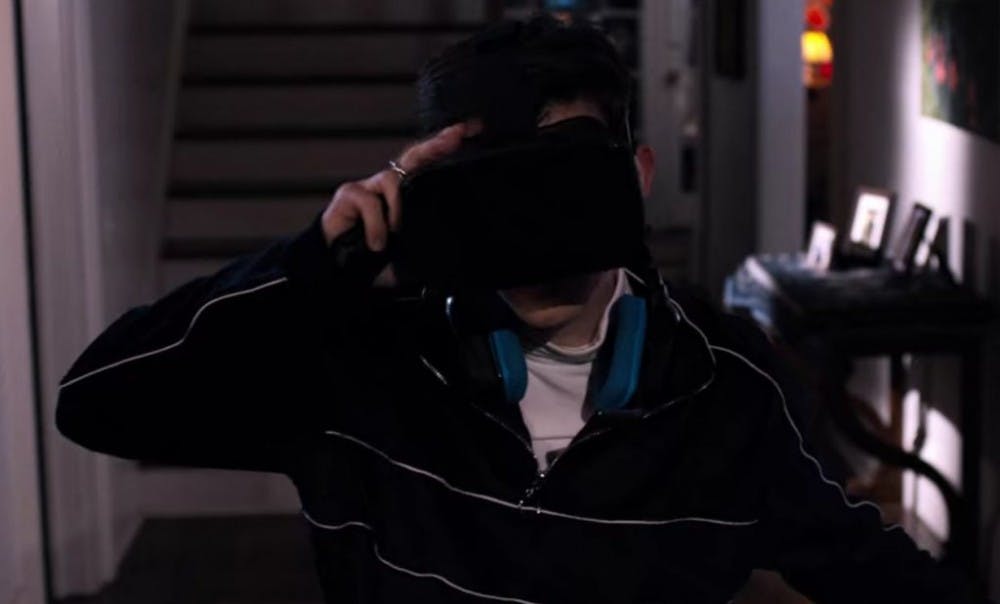
The characters within Tall Girl are sloppily written and make decisions seemingly at random, which would almost be accurate for high school if it wasn’t obvious that these decisions were being made to reach a specific, predictable end. For example, Jodi, our protagonist, is frequently the source of her own problems, not due to insecurity, but due to being a terrible friend and communicator. The drama in the second act of the film is almost entirely self-inflicted, with Jodi burning nearly every bridge on her Viking conquest. Of course, the drama resolves itself, but not due to Jodi reconciling with the people she hurt. Instead, the drama magically disappears without any effort put in by any of the characters involved. In the case of Fareeda, they literally say nothing to each other between their big fight and their make-up. The movie is trying to portray Jodi as sympathetic, but it’s hard to sympathize with someone who is being cartoonishly standoffish to people she’s longtime friends with.
However, the most egregious example of a terribly-written relationship is the owner of the childhood friend trope, Jack Dunkleman. Jack is written with certain characteristics to make him come off as quirky; he carries his stuff in a milk crate, he’s hopelessly in love with a girl that doesn’t reciprocate, uses overly complicated metaphors, and plays battle royale games on a VR headset with someone from Okinawa. In the context of the love dodecahedron, he’s the scrappy underdog the audience is supposed to be rooting for to get with Jodi, and to his credit, the performance given by Griffin Gluck in this role is genuinely great. The problem is that Jack more often than not crosses the line and becomes manipulative and creepy. He intentionally tries to sabotage Jodi’s friendship with Stig, he makes remarks about her “beautiful torso,” he leads a different girl on despite having no intentions with her, and he even comes into Jodi’s room while she’s sleeping and tries to stroke her hair. I was constantly questioning why Jodi stayed friends with Jack, although considering how awful Jodi was, it was probably to feed her ego by leading someone on for so long.
The worst part about it is that these characters could have been more than their tropes. The natural resolution to Jodi’s character arc could be that she’s confident in herself, and, with the admiration of the student body, no longer needs to find a guy. Jack could have learned his lesson about the hopeless pursuit, sacrificing his own happiness for the sake of his friend. The only character with an arc that fits not just their trope, but the narrative as a whole, is Stig. This perfect guy comes from Sweden and is the exotic foreigner, but back home he’s a nobody. He goes too far with his desire to be the popular kid and ends up hurting people he truly did love and respect. And, surprisingly, his arc has a satisfying conclusion. But one satisfying conclusion doesn’t make up for all of the missed opportunities abandoned in favor of lazy storytelling. It doesn’t help that there’s unironically more romantic chemistry between Stig and Jack than nearly every other romantic pairing in the film.

Image from Digital Spy
And hoo boy, does this film go a little overkill with romantic pairings. Firstly, there are two love-triangles running parallel to each other. The first is with Kimmy, Jodi, and Stig. The second is with Jack, Jodi, and Stig. Of course, a love trapezoid would be too simple, so Kimmy’s female friend Liz is in love with Jack, while her guy friend Schnipper falls in love with Jodi after Jodi applies a little bit of lip gloss. The absurdity of this love polygon reaches maximum cringe in a scene where pairs of Kimmy/Stig, Jodi/Schnipper, and Jack/Liz all decide to have a group make-out session in an escape room. During the scene, the film wildly cuts between extreme close-ups of Stig, Jodi, and Jack all staring down the person they really love. And all of this is scored by a pop song so generic and forgettable I’d believe it was royalty-free. Jodi ends it early, trying to leave, but the joke’s on her: it’s still an escape room. And the joke’s on the audience: there are still about 40 minutes left in the film.
The problem-film without a genuine problem
Of course, the small controversy of the film’s trailer drop two weeks ago doesn’t work in the film’s favor. On the surface, the film seems to be about the oppression and discrimination against tall girls, along with how such tallness can create issues with self-image. And that second part is a real issue; women, especially trans women, can feel uncomfortable due to their height making them not feel like the women they are. However, Jodi is an attractive, cisgender, straight, white tall girl. In the world today, there are so many issues in terms of diversity within media and fair portrayals of minority groups. So, a movie about a good-looking, every-day girl who just so happens to be very tall feels a little like a movie in the wrong place at the wrong time.
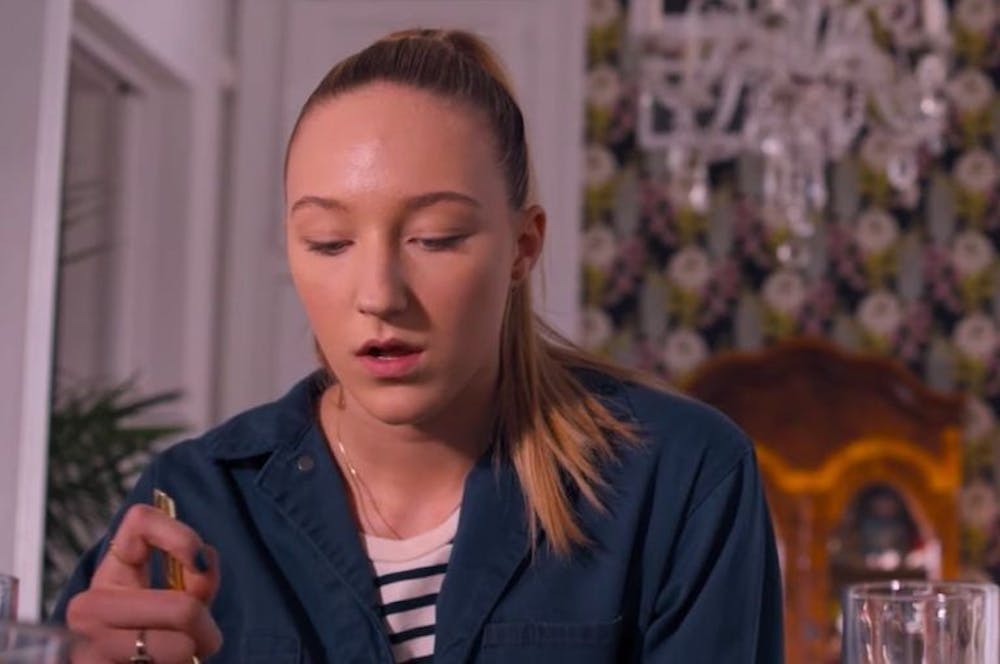
Image from Digital Spy
It’s even more absurd when the movie uses a pageant-winning mom and older sister to emphasize that Jodi is supposed to be ugly. Ava Michelle, the Tall Girl, is actually a successful fashion model and dancer outside of the world of the movie. Now, that’s arguably lazy criticism, but a movie about something as ridiculous as tall girl oppression needs to work a lot harder to make the issues it talks about real issues, especially since it even attempts a hamfisted political allegory about immigration and acceptance in one scene early on. It’s not ridiculous enough to be a meta-commentary farce, and it’s not serious enough to really mean anything. It slouches into all the comfortable cliches, conforming to a genre so overdone, it makes one pine for those at least vibrant nightmares of real high school experience.

Images: Netflix, Digital Spy
Featured Image: IMDb
For more entertainment related content, visit us at Byte BSU!

